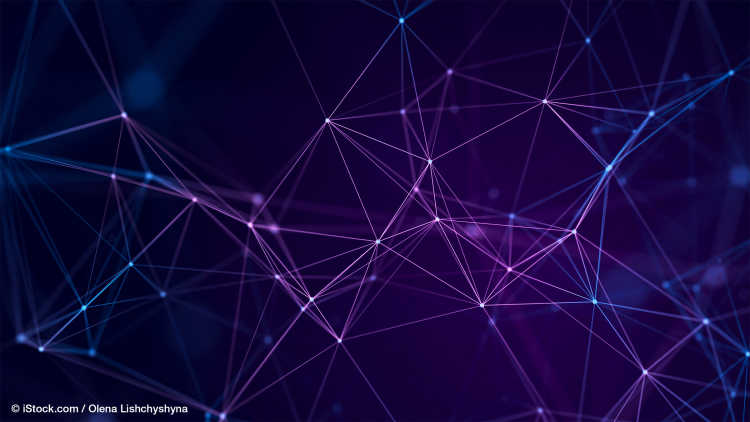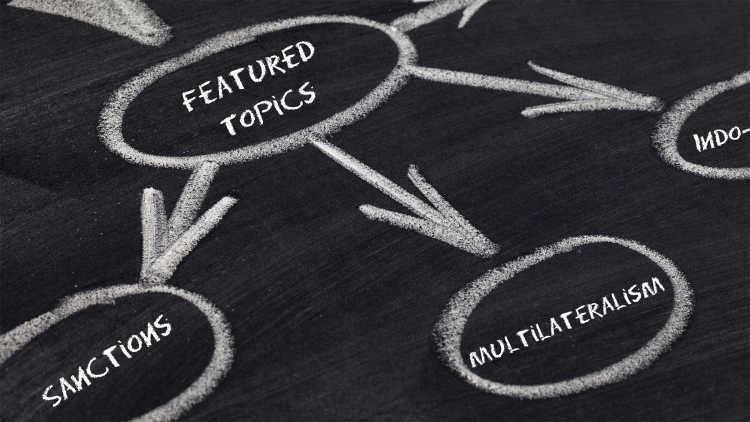- Startseite
- Veranstaltungen
- Konferenzen und Workshops
- GIGA Speaker Series on African Affairs
GIGA Event
GIGA Speaker Series on African Affairs
Datum
30.04.2023





The GIGA Speaker Series on African Affairs aims at painting a nuanced picture of sub-Saharan Africa by discussing political and socio-economic developments on a regular basis. We provide a platform for excellent African researchers to increase the visibility of African perspectives on current affairs in Germany. Moreover, with our series, we aim to further strengthen collaborations with African partners. The series takes place around four times a year and is available to the public. Information on upcoming and past seminars is posted below.
Organisers: Prof. Dr. Matthias Basedau is Director of the GIGA Institute for African Affairs Dr. Lisa Hoffmann is a Research Fellow at the GIGA Institute for African Affairs Julia Köbrich is a Research Fellow at the GIGA Institute for African Affairs
Vergangene Veranstaltungen
“Decolonising Economics Research”
Tuesday, 30 April 2024 | 9:00-10:00 a.m. (CEST Hamburg time) | in-person and online
Decolonising economics research involves critically examining the legacies of colonialism and neocolonialism that continue to shape knowledge production and perpetuate inequalities within the field. Key questions include how to identify and dismantle the Eurocentric biases inherent in economic theories and practices, what strategies can ensure the inclusion of diverse perspectives and scholars from the Global South, how to challenge the claims of neutrality and universality that dominate mainstream economics, and how to reorient shape economics to support material struggles against racism, sexism, elitism, and imperialism.
Dr. Amma Panin, Assistant Professor at the University of Louvain, presented evidence of how existing structures in economic research perpetuate colonial inequalities, focusing on the distribution of publications, conferences and funding. Prof. Renate Hartwig of RWI and the University of Bochum led a discussion on this topic.
Speakers: Dr. Amma Panin is Assistant Professor at the University of Louvain, her research focuses on experimental economics and the role of decision-making under uncertainty.
Discussant: Prof. Renate Hartwig is Professor for Empirical Economics at the RWI - Leibniz Institute for Economic Research and University of Bochum.
Moderation: Apl. Prof. Jann Lay is Head of the GIGA Research Programme Globalisation and Development.
"The State of Democracy in Africa: What Do Africans Think?"
Wednesday, 12 April 2023 | 5:00–6:30 p.m. (CEST) GIGA Berlin Office, Friedrichstraße 206, 10969 Berlin, and online
According to many observers, democratic achievements in Africa are at risk. A recent wave of military coups has raised fears of further backsliding to authoritarian rule. A new wave of resource-plundering in Africa and primary commodity dependence caused by competing external actors, including Europe, the United States, China, Russia, and Middle Eastern countries, may create support for authoritarian elites. How do diverse African publics view these developments? In previous surveys, Afrobarometer, the renowned research network that conducts public attitude surveys in Africa, observed a growing concern around these issues in many African countries. The organisation’s previous round of surveys found that citizens in many countries are losing faith in democratic processes and institutions, and that there is a growing perception that elections are not very effective. These worries are validated by experiences with corruption, poverty, and ethnic and religious divisions, among other things. Most citizens prefer democracy to any other kind of government, including military and one-party or one-man rule.
Dr. Joseph Asunka, CEO of Afrobarometer, will present the results of the latest round of Afrobarometer surveys from more than 39 countries. His presentation will be followed by brief comments from an academic and practical view in Germany.
Speakers: Dr. Joseph Asunka is the CEO of Afrobarometer, renowned for its survey polls in Africa.
Comment: Ambassador Christoph Retzlaff is Director Sub-Saharan Africa and Sahel at the Foreign Office of the Federal Republic of Germany.
Discussant: Prof. Dr. Matthias Basedau is Director of the GIGA Institute for African Affairs.
Moderator: Dr. Julia Grauvogel is a Senior Research Fellow at the GIGA Institute for African Affairs.
“Nigeria after the Elections: What Next? ”
Thursday, 9 March 2023 | 4:00–6:00 p.m. (CET – Hamburg time) | Online
Voters in Nigeria, over 90 million in number, are expected to turn out in force in the high-stakes 25 February presidential polls as incumbent President Muhammadu Buhari completes his constitutionally defined two-term limit in office. For the first time since Nigeria’s return to democracy in 1999, observers expect a three-way presidential race. Bola Tinubu, the controversial former governor of Lagos state, from the ruling All Progressives Congress will compete with the federalist former vice president Atiku Abubakar of the main opposition People’s Democratic Party (PDP) and charismatic Peter Obi of the Labour Party, the latter of whom is especially popular among the country’s over 12 million first-time youth voters. Without a sitting president able to capitalise on incumbency advantage running, the political atmosphere is highly tense and the chances of a tight race high.
The growing popular distrust in political institutions, deep ethnoreligious cleavages, as well as a highly partisan traditional media could undermine the legitimacy of the elections and escalate social unrest in several volatile parts of the country. The chronic Islamist insurgency in the northeast along with the upsurge in organised crime and secessionist activities in the south could all be flamed by social media abuse and disinformation around voting day.
While the 2023 presidential polls in Nigeria – Africa’s powerhouse – could bolster its democracy, they could also set the country on the path of electoral disputation, unrest, and democratic backsliding if digital disinformation and misinformation are allowed to fester.
This event will feature a preliminary analysis of the electoral results. Three eminent experts from Nigeria and West Africa will discuss the latter and outline their implications for both the future of Nigeria and politics in the subregion.
Speakers: Dr. Sa'eed Husaini is a Junior Fellow at the Maria Sibylla Merian Institute for Advanced Studies in Africa at the University of Ghana, Accra, Ghana. Prof. Dr. Lynda Iroulo is an Assistant Professor at Georgetown University, Qatar.
Dr. Nkwachukwu Orji is a Senior Research Fellow at the Institute for Development Studies of the University of Nigeria.
Moderation: Dr. Martin Acheampong is a Research Fellow at the GIGA Institute for African Affairs.
"Africa’s Long-Term Development Potential in Different Global Futures"
Tuesday, 1 November 2022 | 10:00‒11:00 a.m. (CET – Hamburg time) | Online
On the current trajectory, the gap between Africa and the rest of the world is likely to stagnate or increase ranging from measures of life-expectancy to average income. Four recent shocks, including the current war in Ukraine, have accelerated this trend. The African Future’s & Innovation (AFI) program at the Institute for Security Studies (ISS) has modelled Africa’s long-term development potential across various sectors. This seminar will present a new report which examines the ‘development ceiling’ that the global context places on Africa in four global scenarios. Dr Jakkie Cilliers will present using the African Futures website available at futures.issafrica.org.
Hosted by GIGA Institute for African Affairs in cooperation with the GIGA Research Programme "Peace and Security". Speaker: Dr. Jakkie Cilliers is the founder of the Institute for Security Studies (ISS), a regional think- and do-tank with offices in Dakar, Addis Ababa, Nairobi and Pretoria. After stepping down as executive director in 2015 he now serves as the chairman of the Board of Trustees of the Institute and head of the African Futures and Innovation programme at the Pretoria office of the ISS. He is an Extraordinary Professor in the Centre of Human Rights and the Department of Political Sciences, Faculty Humanities at the University of Pretoria and a well-known author and analyst. His interests relate to big picture analysis and issues around the long-term future of South Africa and Africa – much of it available at futures.issafrica.org.
Moderation: Prof. Dr. Matthias Basedau is Director of the GIGA Institute for African Affairs.
“Russia Resurgent? Untangling the Role and Meaning of Moscow’s Presence in West Africa and the Sahel”
Monday, 20 June 2022 | 2:00‒3:00 p.m. (CET – Hamburg time) | Online
Growing international concern about Russia’s military and political resurgence in Africa has been rekindled by its invasion of Ukraine since February 2022. Russia’s growing influence in Africa through the re-establishment of old ties and the creation of new ones has been perceived as a quest to re-establish the geopolitical gains that the Soviet Union achieved prior to its collapse in 1989. Increasing demand for Russian weaponry and equipment, support for unpopular, illegitimate, or unconstitutionally elected leaders, and the targeting and interest in mining concessions and natural resources are considered by the West as a threat to democratic gains and stability on an already fragile continent.
Several questions arise as a result of the deepfake propaganda around occurrences on the continent: How has Russia’s resurgence manifested in Africa? What instruments does Russia utilise to exert its influence there? What are the potential opportunities and threats coming with a Russian presence in West Africa and the Sahel? And, how will other global actors be affected? I seek to examine a particular aspect of Russia’s resurgence on the African continent: namely, the presence of Russian proxies in West Africa and the Sahel. Investigated are the multiple dynamics created by their presence, the potential threats that their proliferation and activities generate in an already fragile subregion, and how such activities, if unconstrained, can impose other potential dangers on the continent as well as the global stage at large.
Hosted by GIGA Institute for African Affairs in cooperation with the GIGA Research Programme "Peace and Security". Speaker: Prof. Kwesi Aning is Director of the Faculty of Academic Affairs & Research, Kofi Annan International Peacekeeping Training Centre, Ghana, and Clinical Professor of Peacekeeping Practice at Kennesaw State University, Atlanta. Moderation: Dr. Christian von Soest is Lead Research Fellow at the GIGA Institute for African Affairs and Head of the GIGA Research Programme “Peace and Security.”
Adresse
GIGA, Neuer Jungfernstieg 21, 20354 Hamburg, and online
Sprache
Englisch
Registrierung erforderlich
Wir bieten Ihnen unsere Veranstaltungen rein digital oder hybrid an. Dabei berücksichtigen wir stets die aktuelle Pandemie-Situation. Wir freuen uns auf Ihre Teilnahme.


